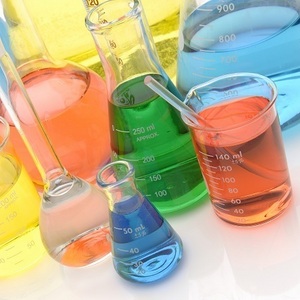Deinove announces agreements with Abengoa, Suez Environnement

June 3, 2014
BY Erin Krueger
On June 3, France-based Deinove announced a collaboration agreement with Abengoa and a separate research and development agreement with Suez Environnement Group. The company is focused on the optimization of fermentation and metabolic capabilities of the Deinococcus bacteria to produce biomass based fuels and chemicals.
The agreement with Abengoa makes the company the new industrial partner on Deinove’s Deinol project, replacing the Tereos Group. The project is a collaborative research program for the development of second-generation biofuel production processes using the Deinococcus bacteria. Information released by Deinove indicates that Tereos has supported the Deinol project since 2010 and is a shareholder in Deinove. The company, however, has waived its option the Deinol project. As such Deinove is welcoming, in agreement with Tereos and Bpifrance, Abengoa as the new industrial partner on the project. Bpifrance, formerly known as Oseo-ISI, agreed to provide the project for €8.9 million ($12.12 million) in 2010, including €6 million provided to Deinove. The company has already received €4 million of that commitment and has achieved the first key milestones.
Advertisement
Advertisement
The agreement with Abengoa is expected to span up to 36 months and focus on the development of Deinove’s consolidated bioprocess using Deinococcus bacterium to convert agricultural residues into ethanol. According to information released on the agreement, performances obtained with substrates supplied to Deinove by Abengoa will be evaluated in order to set up a process that can be implemented at the commercial scale, subject to adequate performance.
The two-year research and development agreement with Suez Environnement Group is the first step of a project that aims to explore the potential to convert urban organic waste into ethanol using the Deinococcus bacteria.
Advertisement
Advertisement
“With its amazing capacity for effectively degrading all types of biomass, Deinococcus creates value from waste that is little used today,” said Emmanuel Petiot, CEO of Deinove. “In cooperation with Suez Environnement, one of the world leaders in processing and recycling waste, we are expanding our potential markets and are contributing to the development of a real circular economy.”
The two companies have already been working together for six months. That research phase has confirmed waste substrates from Suez Environnement’s processing units can be converted into ethanol using the Deinococcus bacteria. The first phase of the new agreement will focus on optimizing the choice of substrates supplied by Suez Environnement and pretreatment conditions. It will also aim to determine the best strain of Deinococcus to adapt to the selected substrates and define the conditions need to achieve satisfactory ethanol production rates in 20-liter bioreactors.
Related Stories
Broco Energy on July 17 announced a new partnership with the Massachusetts Port Authority (Massport) to deliver and transition Massport's fuel tanks to renewable diesel across its various facilities.
Shell Aviation, Accenture, and Amex GBT on July 10 announced Avelia is in the process of evolving to an industry solution with independent data hosting and a multi-supplier model helping users access the GHG benefits of SAF.
The U.S EPA on July 17 released data showing more than 1.9 billion RINs were generated under the RFS during June, down 11% when compared to the same month of last year. Total RIN generation for the first half of 2025 reached 11.17 billion.
The U.S. EPA on July 17 published updated small refinery exemption (SRE) data, reporting that six new SRE petitions have been filed under the RFS during the past month. A total of 195 SRE petitions are now pending.
European biodiesel producer Greenergy on July 10 confirmed plans to shut down its biodiesel plant in Immingham, Lincolnshire, U.K. The company temporarily suspended operations at the facility earlier this year.
Upcoming Events










